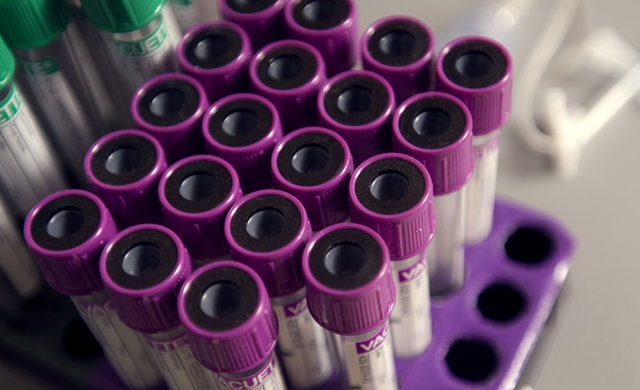17 Oct. 2018. Researchers in Australia are conducting clinical trials of blood tests among cancer patients to help determine the course of their treatment, including the need for chemotherapy. The studies are led by a team from Walter and Eliza Hall Institute, a medical research center in Melbourne.
The trials, directed by cancer specialists Jeanne Tie and Sumi Ananda, are testing the ability to detect and assess circulating tumor DNA in simple blood tests among cancer patients, also called liquid biopsies, as a way to guide chemotherapy treatments for patients. Circulating tumor cells are individual cells that break off from original tumors or those formed from where cancer spreads, and flow through the blood stream. These cells make up a minute proportion of blood volume, but are implicated in the spread of cancer to other parts of the body. Because of their tiny amounts, circulating tumor cells are difficult to find, but when detected can offer an early warning about the spread of cancer in a patient.
This blood test for circulating tumor DNA was developed by researchers at Walter and Eliza Hall Institute and Johns Hopkins University in Baltimore, Maryland. Earlier trials beginning in 2015 show the blood test can indicate patients are at high or low risk, with the studies now extended to women with ovarian cancer. More than 400 individuals took part so far, with the goal of enrolling a total of 2,000 participants by 2021.
Many early-stage cancer patients now receive chemotherapy as a precaution, since there is no reliable way to determine if their cancer will return after the tumor is removed. “While chemotherapy is an essential, life-saving treatment,” says Tie in an Institute statement, “we don’t want patients receiving it if they don’t need it. We want to help these patients avoid serious and ongoing side-effects associated with chemotherapy.”
Tie, Ananda, and colleagues believe circulating tumor DNA, when analyzed, will provide enough information to decide on the extent and intensity of chemotherapy for patients. “Undergoing chemotherapy is a huge imposition on a patient’s life,” notes Ananda, “both because of the side-effects patients have to endure, as well as the time the treatment takes. Many of my patients have to stop working, and postpone important parts of their life such as travel, so they can attend their chemotherapy sessions and manage the side-effects of the treatment.”
The clinical studies, held at more than 40 sites in Australia and New Zealand, are enrolling patients with stage 2 or 3 colorectal or ovarian cancer; stage 2 and 3 cancer indicates the tumor is growing into nearby tissue or spread to the lymph nodes, but not yet to other parts of the body. All participants in the trials receive blood tests following surgery to remove their tumors, with half of the group randomly assigned to receive chemotherapy if circulating tumor DNA is found or to avoid chemotherapy if the tests return negative results. The remaining participants will not be told of their blood test results, but continue to receive the usual care. All participants are then tracked quarterly or semi-annually for the next 5 years.
“We would like to be able to tell some patients,” adds Tie, “that they can safely avoid chemotherapy because their cancer is unlikely to recur.” Ananda, Tie, and a trial participant tell more about the studies in the following video.
- FDA Clears Genomic Bone Marrow Test for Low-Level Cancer
- Liquid Biopsy for Solid Tumors Now Available
- Personalized Breast Cancer Trial Advances 7 Drugs
- A.I., Imaging Shown to Predict Immunotherapy Success
- Blood Tests Shown Able to Identify Early Lung Cancer
* * *


 RSS - Posts
RSS - Posts
You must be logged in to post a comment.